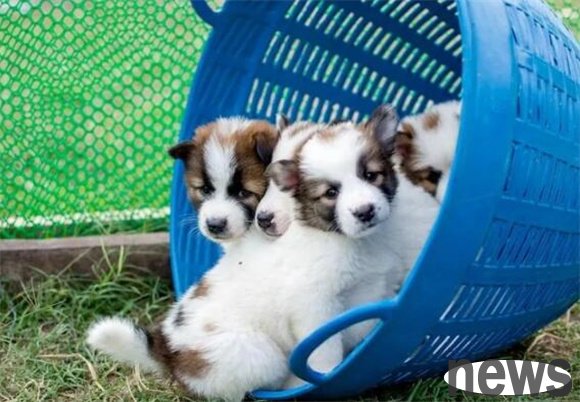-When indoor and outdoor conditions do not allow, cage-raising puppies can be used as a temporary arrangement. For example, when the weather is bad or when there are guests in the family, cage-raising puppies can better arrange puppies. In some cases, such as bad weather or when there are guests at home, allowing puppies to move freely can add unnecessary hassle or danger. At this time, placing the puppy in a cage can ensure its safety and comfort and avoid conflicts or accidents with the external environment. At the same time, cage can also help puppies maintain good behavior and habits during this period, and avoid anxiety or anxiety due to environmental changes. Therefore, cage-raising puppies can not only provide a convenient temporary arrangement for the owner, but also provide a safe and comfortable temporary residence for the puppies, so that they can be fully cared for and protected when they are not suitable for free movement. Disadvantages of
Cage puppy:
- Cage puppy may limit the freedom of the dog, causing it to feel frustrated or anxious, especially if left in the cage for a long time. For puppies, the limitations of activity space may cause them to be unable to run and explore, thus feeling the boredom and depression of life. Staying in the cage for a long time and lacking enough exercise and socialization can easily make the puppies feel lonely and anxious. In addition, puppies are naturally interested in interacting with their owners and other animals. If they are isolated from the outside world for a long time, it may lead to weakening of their social abilities and the emergence of behavioral problems. Therefore, for cage-raising puppies, the owner needs to pay attention to giving them enough care and companionship, and regularly give them appropriate exercise and play to alleviate the anxiety and uneasiness they may have. At the same time, try to avoid leaving your puppies alone in the cage for a long time, giving them more free time to move around so that they can enjoy their lives in a safe environment.
- Cage puppies require more time and patience to train to ensure that the dog is used to living in a limited space. Cage raising requires the owner to invest more time and energy to guide the puppies to adapt to the cage lifestyle than free activities. This requires patience and continuous training to enable the puppies to gradually accept and get used to living in restricted spaces. The training process may involve gradually extending the cage time, teaching puppies to behave like defecating and quiet within the cage, and providing appropriate incentives and rewards to strengthen the consolidation of good behavior. In addition, owners need to pay attention to the psychological state of the puppies to ensure that they do not feel lonely or anxious during the cage process, and take appropriate measures to relieve possible stress and discomfort. Therefore, training for cage-raising puppies requires more patience and effort from the owner to ensure that the puppies can adapt to this lifestyle healthily and happily.
- If cages are not cleaned and sorted regularly, cage-raising puppies can cause hygiene problems, such as odor or bacterial growth. As puppies live in cages, their excrement, food residues and hair may accumulate in the cage, causing dirt and odor. This will not only affect the living environment and health of puppies, but may also lead to bacterial growth and disease transmission. Therefore, the owner needs to regularly clean and disinfect the cage to remove dirt and odors, and maintain a clean and hygienic environment. At the same time, it is also necessary to regularly replace items such as mattresses and dietary utensils to ensure the health and comfort of the puppies. Through regular cleaning and organization, hygiene problems can be effectively prevented, providing a clean and healthy living environment for puppies, and ensuring their health and happiness.

Whether you choose free-range or cage, you should do it while ensuring the health and happiness of the dog. It is important to give them enough love, care and training to ensure they become happy and safe partners. No matter which method you choose, remember that the close relationship and continuous care you have established with your puppies will be their most precious asset in their growth.